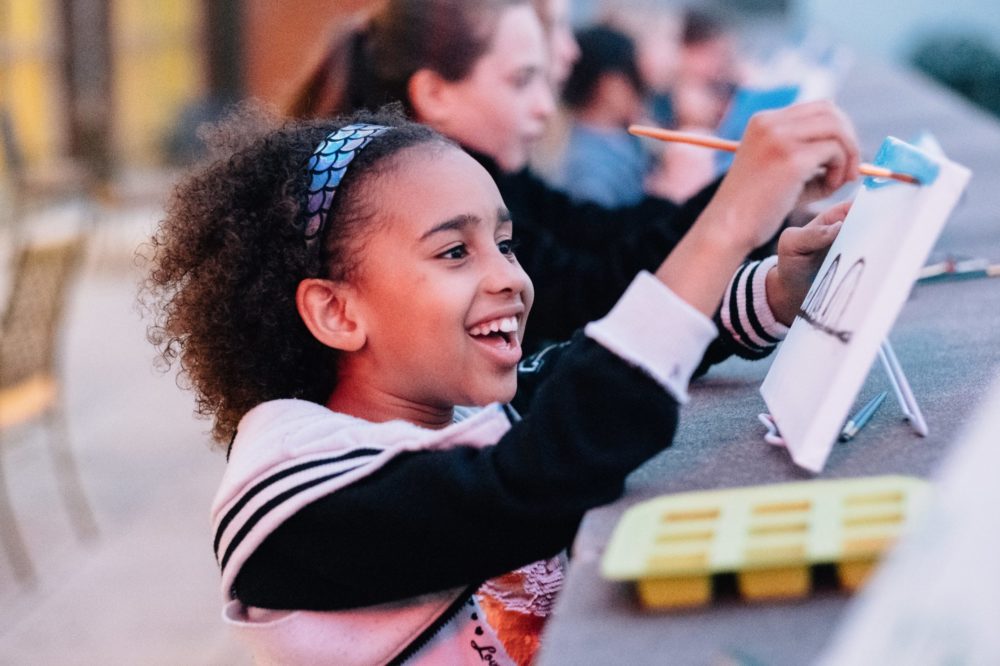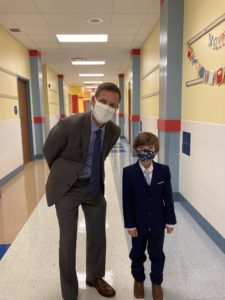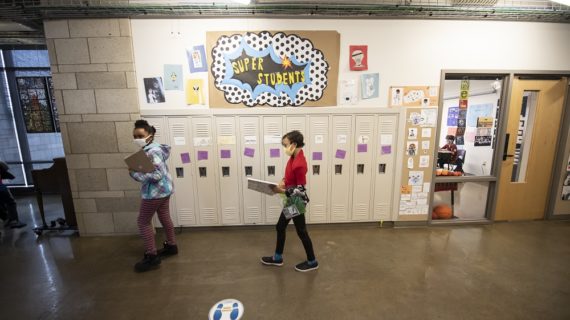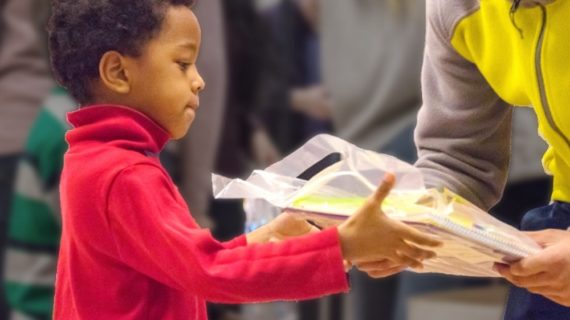
3 small steps that can fill this school year with moments of joyful learning
Photo by Ben Filio for Remake Learning.
Doesn’t March 2020 seem like such a long time ago? Here we are starting yet another school year, and the virus is still with us. Schools are planning all kinds of logistics to keep everyone safe. Meanwhile, lines have been drawn over opinions on masking. Oh my! When will it all end?
The truth is, we don’t know. We can’t wait for the pandemic to cease its grip on us. And we can’t pretend this time hasn’t been incredibly stressful for children and families — especially those who were already shouldering daily challenges before the pandemic began.
But even as we face these realities, it’s imperative that we focus on rediscovering the joy of learning and school. As an educator, it’s always been my central belief that joy is at the center of learning — pandemic or no pandemic.

Research tells us that joy is the key to engagement and learning (Ford & Ortiz, 2012). During the past year and a half, I’ve been inspired by many teachers who have managed to find and maintain positivity and joy in their classrooms and schools. It’s not surprising, though. Master teachers keep this at the top of their minds when they plan their learning activities.
All of us can play a valuable role in ensuring that joy is at the center of the learning experience for our children. Here are some simple ways you can help as this school year begins:
Consider what joyful learning is — and what it isn’t.
Joyful learning means a child is engaged and finds value in an activity — becoming immersed in it, and maybe even losing the sense of time, as though nothing else seems to matter (Csikszentmihalyi, 1990). Joyful, engaged learning shouldn’t be confused with just completing a task. Many kids have the self-discipline to complete a task, but not be truly engaged or finding joy. Notice what kinds of learning activities are joyful for your child, and perhaps let a teacher know what you’ve seen.
Let yourself find moments of joy as you learn with your child.
Children look to their parents and other trusted adults in times of stress. As stressful as this time is for all of us, we need to be careful of how we express that frustration in front of our children. A positive, encouraging, reassuring approach from parents can give a child just what they need in times of uncertainty.
So try learning something new — perhaps a musical instrument, or some form of art — and let your child know you’re doing it for fun and joy. You don’t have to be great at it! In fact, when children see productive struggle from their loved ones, it can build their sense of resilience. The key is showing our children that finding joy in learning is important in our lives, too. That example can inspire them.
Slow down and make time for joy.
One of my most positive takeaways from the early days of the pandemic lockdown was that my family slowed down our lives. We rediscovered fun and creative activities. Game nights, hiking local trails, and small home projects all brought my family a great deal of joy and strengthened our relationships. We’ve committed to keeping this going.
Among our favorite activities: preparing meals together. When I was growing up, my mom would let us make choices and experiment with different ingredients and recipes. I have such fond memories of those evenings. Today, I can see my mom’s wisdom. Years later as a teacher, one of the most effective engagement strategies I found with students was to provide them with voice and choice — just like my mother did for me. You can make a joyful space for your child’s voice and their choices as they learn things in your household.

It really can be that simple. When I was a child, some of the best conversations with my mom were during preparation and clean up after dinner. The distraction of the activity led us down many paths: We spoke not about food, but about my relationship with my brother and sister, disagreements with friends, and anything else that seemed at the top of my mind.
She didn’t know it at the time, but my mom was an expert at social-emotional learning!
“There’s never been a time in our history when there have been so many changes, so many unusual things to deal with for which we have no experience,” Fred Rogers once said. “It’s as if our whole society were walking along a road through a wilderness of constant change with strangers we think we should know, but don’t quite understand.”
It’s pretty incredible how intuitive Mr. Rogers was. Even though he wasn’t talking about the pandemic, his words offer insight and wisdom to us now. Most importantly, they offer comfort.
As parents, we don’t have to be perfect. We just have to do the best we can to support our children in uncertain times and make space for joy where we can. In the end, doing our best will be good enough.
Dr. Tom Ralston is this month’s guest editor at Kidsburgh. Dr. Ralston currently serves as executive director of the The Forum for Western Pennsylvania School Superintendents, based at the University of Pittsburgh. He previously served as superintendent at Avonworth School District. We look forward to hosting monthly guest editors and sharing their insights with the Kidsburgh community throughout the coming year.


